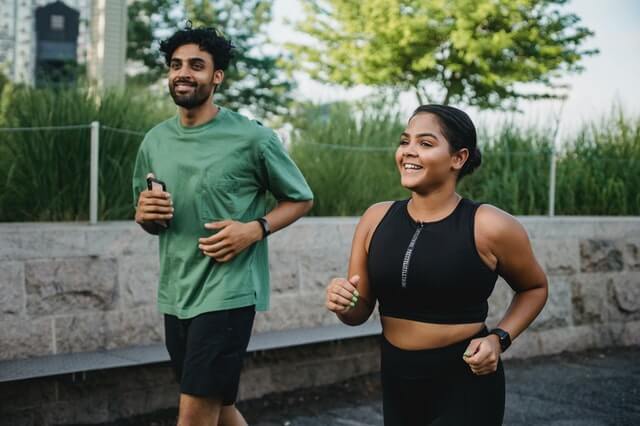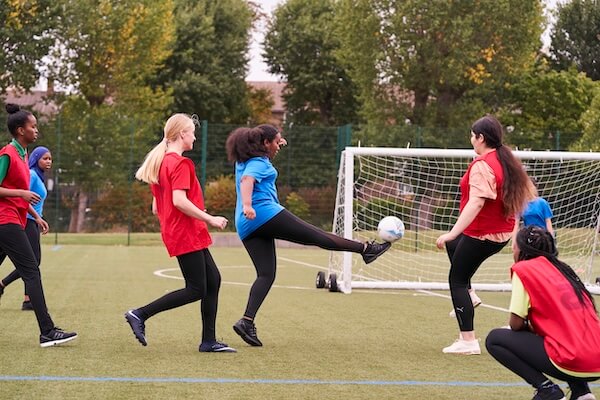
Whether you're a novice runner or an avid one, starting a running group is a great way to motivate yourself and others. There are many reasons why you might want to run with people other than your partner or friends. Whether you're looking for support or trying to get your work out in, a running group can be the perfect fit for you. You'll also get a chance to meet new people and learn from their experiences. If you've never been part of a running group before, this guide will help you out! Here's everything you need to know about starting a running group in your area.
Benefits of starting a running group
Starting a running group can have many
benefits, including:
-
Increased motivation: Running with a group can make the experience more enjoyable and help individuals stay motivated to stick with their exercise routine.
-
Social support: A running group can provide a sense of community and social support, which can make the experience more fun and fulfilling.
-
Improved performance: Running with a group can also help individuals improve their performance by pushing each other to work harder and reach new goals.
-
Safety: Running with a group can provide a sense of safety, especially for those who prefer to run in the early morning or evening hours when visibility may be limited.
-
Variety: Running with a group can provide the opportunity to try different routes and locations, which can help prevent boredom and keep the experience fresh.
Reasons to start a running group
There are so many reasons to start a running group. Maybe you have signed up got a racing event and want to practice with other runners. Maybe you have a significant other who's been on your back about getting started running, or maybe you just want to enjoy running but don't have anyone to run with. Whatever the reason, starting a running group can be beneficial.
There's no better way to maintain motivation than having an accountability partner. You'll always be able to rely on someone else for support throughout your training.
How to start a running group
The first step is to find a place that you want to start your running group. Maybe it's in your neighborhood or town, or maybe you're looking for a new running location. The second step is to make sure the space you choose is safe and accessible, as well as has enough room for groups of all sizes. The third step is to figure out who will be able to help run the group and possibly join in on the fun!
Once you have a spot picked out, you'll need some rules and guidelines to ensure everyone follows them. Also, consider how often you'll meet up with the group and how long each meeting lasts. Some runners prefer to run once or twice a week and do shorter meetings while others might want to train for longer periods of time before meeting up with their friends.
A good way to find new members for your group is to ask around. You can reach out to people at your work or those in your friends circle and ask them if they'd be interested in joining your group. Make sure to also share your group through a running-related facebook groups and your local community facebook groups.
Planning your first run
Talk to your running group. Ask what they are interested in or what they find difficult. Involving them in the planning will give them a sense of ownership and help them to be more motivated with your running group. Involve your running group in the planning. Involving them in the planning gives them a sense of ownership and helps them to be more motivated.
Pick a time and location that works for everyone in your running group. Meet at a public spot so that people feel safe. Remember, you will not be able to please everyone. Always keep your own availability in mind and pick a time that works for most people. You can always add more events or try other times if required.
Start with small events to get the flow right and make sure that the group is comfortable with each other. When you've got a few events under your belt, you can start to increase capacity. The most important thing is to make sure that people who want to participate get the chance to do so. If a certain event doesn't have enough interest, you can always move it to another time or even cancel it. When you start to increase capacity, you'll want to make sure that you have a backup plan. It's better to have too many people than too few.
Making it work
Keep checking in with all of your participants before and after each run. Ask if anyone had any trouble getting there or if they need anything else from you as a leader of the group; this will help keep things moving smoothly and make everyone feel welcomed into the running community.
Remember to keep communication open and try to meet at least once a week with the group. The group should not be too large or too small. Keep in mind your running goals and try to find a group size that fits your needs. There is no right or wrong size, it’s all about finding the right fit for you.
Conclusion
Running is a great way to get in shape and stay healthy. Starting a running group can take some planning, time and effort. But, once started, it can be a rewarding experience.
Share your running photos and inspire others
Have you started running recently or have a tip on starting? Join the KeepActive Facebook group or tag us on Instagram or Facebook to share your tips or story. There are a lot of people unsure about starting their fitness journey, seeing stories and photos from other people can inspire others to take their first step.






